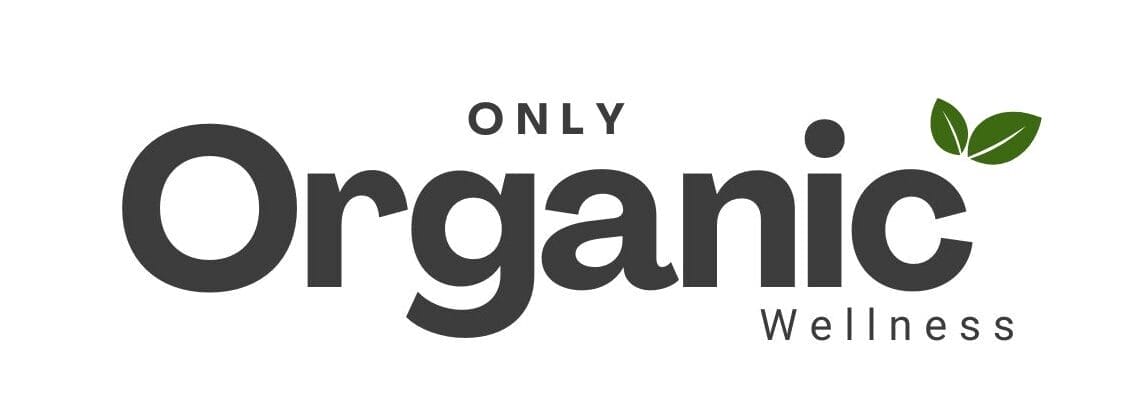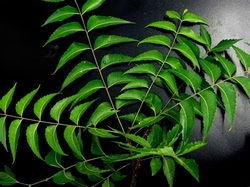Walking through the vibrant markets of rural India several years ago, I first encountered the slender, unassuming branches of what locals reverently called the “sacred tree.” Little did I know that the Azadirachta indica, with its distinctive leaves and powerful presence, would become such a fascinating subject of both my personal wellness journey and scientific inquiry.
A Medicinal Marvel Backed by Science
This remarkable botanical wonder, native to the Indian subcontinent, has earned its place as one of the most medicinally valuable plants ever studied—and the research supporting its traditional uses continues to mount impressively.
The medicinal profile of Neem is nothing short of extraordinary. For centuries, every part of the neem tree—leaves, bark, seeds, flowers, and oil—has been utilized in traditional Ayurvedic medicine. What began as traditional knowledge has now been thoroughly documented in the scientific literature.
Research published in the NCBI database confirms Neem’s exceptional therapeutic properties, noting its complex bioactive compound profile—rare among medicinal plants. The leaves contain numerous compounds required for human health, making it particularly valuable for those seeking natural wellness solutions.
Further research in the NCBI database demonstrates that Neem leaves contain over 140 biologically active compounds, providing remarkable therapeutic potential. Having incorporated Neem into my morning routine for the past three years, I’ve personally noticed a marked improvement in my overall wellbeing—anecdotal, certainly, but aligned with what the research suggests about its medicinal impact.
Traditional Wisdom Meets Modern Research
In traditional medicine systems across various cultures, Neem has been used for centuries to address numerous health concerns. Modern scientific inquiry increasingly validates many of these traditional applications:
Antimicrobial Properties
A comprehensive review published in the Science direct examines the antimicrobial compounds in Neem, identifying specific bioactive components that help combat various pathogens. During a particularly challenging period of skin issues, I found that incorporating Neem into my daily regimen coincided with a noticeable improvement—an observation that piqued my interest in the scientific literature on this subject.
Immune System Support
Researchers publishing in the Journal of Immunology have investigated Neem’s potential in supporting healthy immune function. Their findings suggest certain compounds in Neem leaves may help modulate immune response—though I must emphasise that anyone with immune concerns should consult healthcare professionals before using any supplement.
Dermatological Benefits
The Journal of Ethnopharmacology has published research examining Neem’s potential skin benefits, noting its positive effects on several dermatological conditions. The study suggests that the plant’s unique combination of compounds, including nimbin and nimbidin, may contribute to these beneficial effects.
Liver and Digestive Health
Having always been interested in natural approaches to supporting detoxification pathways, I was particularly intrigued by research in the MDPI demonstrating Neem’s hepatoprotective properties. The study suggests that certain compounds in Neem may help support optimal liver function—the body’s primary detoxification organ.
Traditional Ayurvedic practitioners have long valued Neem for its ability to support digestive health and promote internal cleansing. Modern research has begun to validate these traditional uses, with studies showing Neem’s potential to support beneficial gut bacteria while helping to address harmful microorganisms.
My personal experience with Neem-based digestive support has been particularly positive during travel to regions where digestive challenges are common. While individual experiences vary, the growing body of research on Neem’s digestive benefits provides an intriguing scientific foundation for these traditional applications.
Sustainable Cultivation and Global Impact
Beyond its impressive medicinal and health-promoting properties, Neem stands out for its remarkable sustainability profile. The tree thrives in poor soil conditions, requires minimal water once established, and grows rapidly even in challenging environments. These characteristics have made it increasingly important in addressing health challenges in resource-limited regions.
Research published in PLOS ONE details how Neem cultivation programmes have demonstrated significant impacts on community health status in several Indian and African nations. Having witnessed such programmes firsthand during my travels in South Asia, I can attest to the transformative potential of this unassuming tree.
The environmental benefits of Neem extend beyond its medicinal applications. The tree serves as an effective natural pesticide, reducing the need for harmful chemicals in agriculture. Its deep root system helps prevent soil erosion, while its dense canopy provides valuable shade in hot climates. These multifaceted benefits make Neem a truly remarkable resource for sustainable development.
Modern Applications and Daily Use
For those of us fortunate enough not to face healthcare access challenges, Neem offers a convenient way to enhance wellness routines. The most common modern preparations include:
Neem Leaf Products
- Dried leaf powder, which can be added to skincare formulations or taken internally
- Encapsulated supplements for consistent daily intake
- Tea preparations using dried leaves
Neem Oil Applications
- Topical skin treatments for various dermatological concerns
- Hair care products for scalp health and lustrous hair
- Natural insect repellent for home and garden
Other Neem Preparations
- Neem bark extracts for oral hygiene
- Neem seed extracts for agricultural applications
- Neem flower preparations for seasonal wellness support
Quality sourcing remains paramount when selecting Neem products. Organic cultivation ensures the plant’s beneficial compounds are present without unwanted contaminants. For those interested in experiencing Neem’s benefits through a high-quality supplement, organic Neem extract capsules provide a convenient option.
My personal preference has been for organic capsules—they bypass the distinctive (some might say acquired) taste of Neem while providing consistent dosing. On particularly busy mornings when a proper wellness routine proves elusive, I find them especially valuable for health support.
Ongoing Research and Future Potential
The scientific exploration of Neem continues to expand into exciting new territories. Recent research in Frontiers in Pharmacology has begun investigating Neem’s potential neuroprotective properties, with preliminary findings suggesting certain compounds may support cognitive function.
Cancer Research
Preliminary studies are investigating Neem compounds for potential anti-cancer properties
Antiviral Applications
Researchers are exploring Neem’s potential against various viral pathogens
Neurological Health
Emerging research examines Neem’s potential benefits for cognitive function
Sustainable Agriculture
Studies continue on Neem’s applications as a natural pesticide alternative
Another fascinating avenue of current research examines Neem’s potential applications in water purification. Studies published in the International Journal of Environmental Research and Public Health have demonstrated that Neem seed extract can effectively remove certain contaminants from water—a remarkable dual-purpose application that highlights this plant’s versatility.
Practical Considerations and Final Thoughts
As with any natural supplement, several important considerations should guide Neem use:
Quality Sourcing
Organically grown Neem from reputable suppliers helps ensure both safety and efficacy
Gradual Introduction
Start with smaller amounts if you’re new to Neem, particularly when using the powder form, as its distinctive flavor can be quite potent
Consistency
Regular use typically yields better results than occasional application
Medical Consultation
Those taking medications should consult healthcare providers before beginning any supplement regimen
My journey with Neem began with curiosity and has evolved into a consistent element of my wellness routine. While I’m careful not to attribute every positive health change to any single factor, the research supporting Neem’s benefits, coupled with my positive experience, has made it a staple in my daily life.
What I find most remarkable about botanical powerhouses like Neem is how they connect us to traditional wisdom systems that identified their benefits long before modern analytical techniques could confirm their medicinal composition. There’s something profoundly humbling about realizing that generations before us recognized the value of these plants through careful observation and intergenerational knowledge transfer.
The humble Neem tree, with its unassuming appearance and extraordinary medicinal profile, represents a fascinating intersection of traditional wisdom and modern scientific validation. From rural communities where it serves as a crucial healthcare resource to urban settings where it’s embraced as a wellness supplement, this remarkable plant continues to demonstrate its versatility and value.
Whether you’re drawn to Neem for its impressive therapeutic properties, intrigued by the research on its health-supporting benefits, or simply looking to diversify your wellness routine, this “sacred tree” offers a fascinating example of how the plant kingdom continues to yield remarkable discoveries for human wellbeing—even in our technologically advanced age.
As research continues to unfold and our understanding deepens, I suspect we’ve only begun to appreciate the full potential of this extraordinary botanical treasure.



